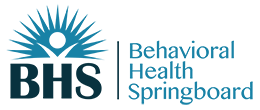Module 2: Overview of Intellectual / Developmental Disabilites
DESCRIPTION
Module 2 provides an overview of Intellectual/Developmental Disabilities and some common neurodevelopmental disorders, with a focus on providing family-centered care. This overview can be especially useful for mental health professionals who may have had less exposure to information about I/DD. It covers neurodevelopmental disorders, such as Global Developmental Delay, Intellectual Disability, and Autism Spectrum Disorder; acquired neurodevelopmental disorders such as Traumatic Brain Injury and Fetal Alcohol Spectrum Disorder; Cerebral Palsy; and Genetic Disorders.
TARGET AUDIENCE
The course was developed for a North Carolina audience by experts from UNC Carolina Institute for Developmental Disabilities (CIDD). It is designed for behavioral health providers and intellectual/ developmental disabilities specialists of all levels. Child welfare professionals, court counselors, educators, primary care practitioners, and parents will also benefit.
LEARNING OBJECTIVES
Participants will
- recognize the source and attributes of four kinds of disorder that produce I/DD: neurodevelopmental disorders (global developmental delay, intellectual disability, Autism Spectrum Disorder), acquired neurodevelopmental disorders (Traumatic Brain Injury, Fetal Alcohol Spectrum Disorder), cerebral palsy, and genetic disorders (Down, Fragile X, Prader-Willi, Angelman, and Williams Syndromes, and Tuberous sclerosis complex).
- name at least two red flags for intellectual disability and Autism Spectrum Disorder that could spark a referral for evaluation.
- describe that the only way to prevent Fetal Alcohol Spectrum Disorders is to ensure that no alcohol is consumed at any time during pregnancy.
- describe the circumstances where the Return to Play and Return to Learn guidelines would be utilized.
INSTRUCTORS
In addition to the instructors listed here for each course, the development of this curriculum was inspired by Mental Health Wellness for Individuals with Intellectual and Developmental Disabilities, developed by the Texas Health and Human Services Commission. Subject matter experts at The University of Texas Health Science Center at San Antonio who contributed to the design and content of that course include Andrea Caoli, LCSW, Karyn Harvey, PhD, Karen Weigle, PhD, Lauren Charlot, PhD, and Joan Beasley, PhD.
Rob Christian, MD, joined Carolina Institute for Developmental Disabilities (CIDD) in 2009 and is an assistant professor of psychiatry and pediatrics in the UNC School of Medicine. Dr. Christian graduated from the UNC School of Medicine and did his post graduate training at The Brown University Triple Board Program which is a combined training program in General Pediatrics, Adult Psychiatry, and Child/Adolescent Psychiatry.
Rebecca Edmondson Pretzel, PhD, is the associate director and a psychologist at CIDD with an appointment at the professor level in the UNC Department of Psychiatry. At CIDD, she serves as the University Center for Excellence in Developmental Disabilities associate director and the director of clinical services; she is also a member of the North Carolina Leadership Education in Neurodevelopmental and Related Disorders (NC-LEND) faculty and leadership team.
Stephanie Fox, PhD, is a postdoctoral fellow in psychology at CIDD. She completed her doctoral training in clinical psychology at the University at Albany, State University of New York.
Laura Hiruma, PhD, is a clinical assistant professor and psychologist at CIDD. She completed her doctorate in clinical psychology at the University at Albany and has completed additional research and clinical training in the field of developmental disabilities at UCLA, JFK Partners at the University of Colorado School of Medicine, and the Carolina Institute for Developmental Disabilities.
AGENDA
Self-paced online course of 1 hour:
- Family Centered Services
- Intellectual Disabilities
- Autism Spectrum Disorder
- Traumatic Brain Injury
- Cerebral Palsy
- Fetal Alcohol Spectrum Disorders
- Genetic Syndromes
- Sensory Impairments
- Resources
CONTINUING EDUCATION
The UNC Chapel Hill School of Social Work has been approved by NBCC as an Approved Continuing Education Provider, ACEP No. 6642. Programs that do not qualify for NBCC credit are clearly identified. The UNC Chapel Hill School of Social Work is solely responsible for all aspects of the programs. UNC SSW designates this continuing education activity for 1 contact hour.
The University of North Carolina at Chapel Hill School of Social Work, #1406, is approved to offer social work continuing education by the Association of Social Work Boards (ASWB) Approved Continuing Education (ACE) program. Organizations, not individual courses, are approved as ACE providers. State and provincial regulatory boards have the final authority to determine whether an individual course may be accepted for continuing education credit. The University of North Carolina at Chapel Hill School of Social Work maintains responsibility for this course. ACE provider approval period: 8/10/2019 to 8/10/2022. Social workers completing this course receive 1 continuing education credits.
This module has been approved by the North Carolina Substance Abuse Professional Practice Board for 1 hr GSB. Approval # 20-369-H-S.
Confirmation Notices and Certificates of Completion: We will confirm your registration by email after payment is received. If you successfully complete this course, your certificate will be ready for you to print or save. Successful completion includes:
- Amount of time spent in the course has met the course minimum.
- You have completed the course evaluation
- You have passed the Post-Test (80%)
POLICIES & ADA STATEMENT
Refund Policy: No refunds will be issued for this event.
Inclement Weather Policy: N/A
ADA Statement: If you require any of the auxiliary aids or services identified in the Americans with Disabilities Act in order to participate in this program, please call us at (919) 843-6083. Websites and courses have been developed in compliance of US Section 508 standards where applicable or meeting W3C priority 1 guidelines for web accessibility.
Please contact bhs-support@unc.edu with any questions or concerns regarding this course.
This course was created with funding from the federal Community Mental Health Services Block Grant Fund (CFDA #93.958) as a project of the NC Division of Mental Health, Developmental Disabilities & Substance Abuse Services.

